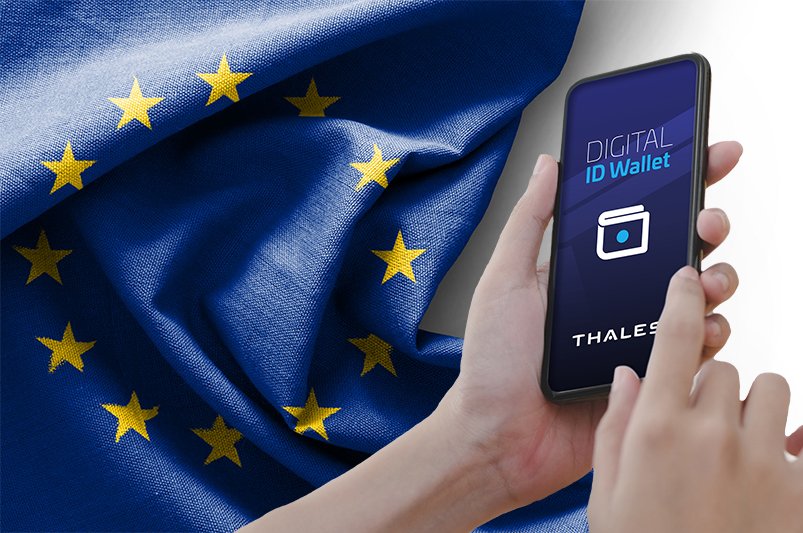Europe’s New Digital Identity Wallet
Photo Credit: Thales
On Nov. 8, the EU’s Internal Market Commissioner, Thierry Breton, announced a deal with Members of European Parliament (MEPs) for a European "digital identity wallet". According to Breton, this initiative promises every EU citizen “a secured e-identity for their lifetime”.
A digital identity wallet is a platform that stores personal information, from government-issued identification, to sensitive documents like birth certificates, medical records, banking activities, and more. It aims to centralise and streamline almost all aspects of citizens' lives into a digital format accessible through one secure platform.
“Any citizen can use [it] anywhere in Europe to do anything from paying [their] taxes to renting a bicycle,” said Ursula von der Leyen, President of the European Commission in a State of the Union address.
The new European digital identity wallets will enable access to online services for all Europeans with national digital identification. It will be recognised throughout Europe, without people having to use private identification methods or unnecessarily sharing personal data with third parties.
However, with this innovation comes potential implications and concerns. The major shift towards digitalising personal identity raises doubts on the level of government oversight into citizens' daily lives.
In a statement released by the European Commission, once the European Digital Identity has been given formal approval by both the European Parliament and the Council, EU members will have to roll out the Digital Identity Wallets over the following 24 months. The rollout aligns with the targets set for the EU's Digital Decade initiative, which aims to enhance digital identity effectiveness by 2030.
This digital identity wallet is a precursor to the EU Centralised Bank Digital Currencies (CBDCs), which are digital currencies issued by central banks, and whose planning stage was approved in November of this year. Critics of the proposal, including a group coalition with digital rights groups such as Privacy International, have voiced concerns over the implications of such a centralised system on citizens’ privacy and autonomy. In an open letter, the group pointed out the potential for government surveillance and control — heightening concerns on privacy and individual liberties.
Canada also has ambitions to implement a digital identity platform. Mona Fortier, who served as treasury board president from 2021–2023, was tasked by Prime Minister Justin Trudeau with working towards establishing a secure digital identity platform for seamless service delivery to Canadians in December 2021.
The current approach, led by MP Anita Anand and Citizens’ Services Minister Terry Beech, emphasises a "digital first" strategy for federal services. However, this is not a universally supported concept among Canadians, as during a rally in Penticton, BC in July, CPC Leader Pierre Poilievre pledged never to introduce a "mandatory digital ID" if he were to become Prime Minister.

